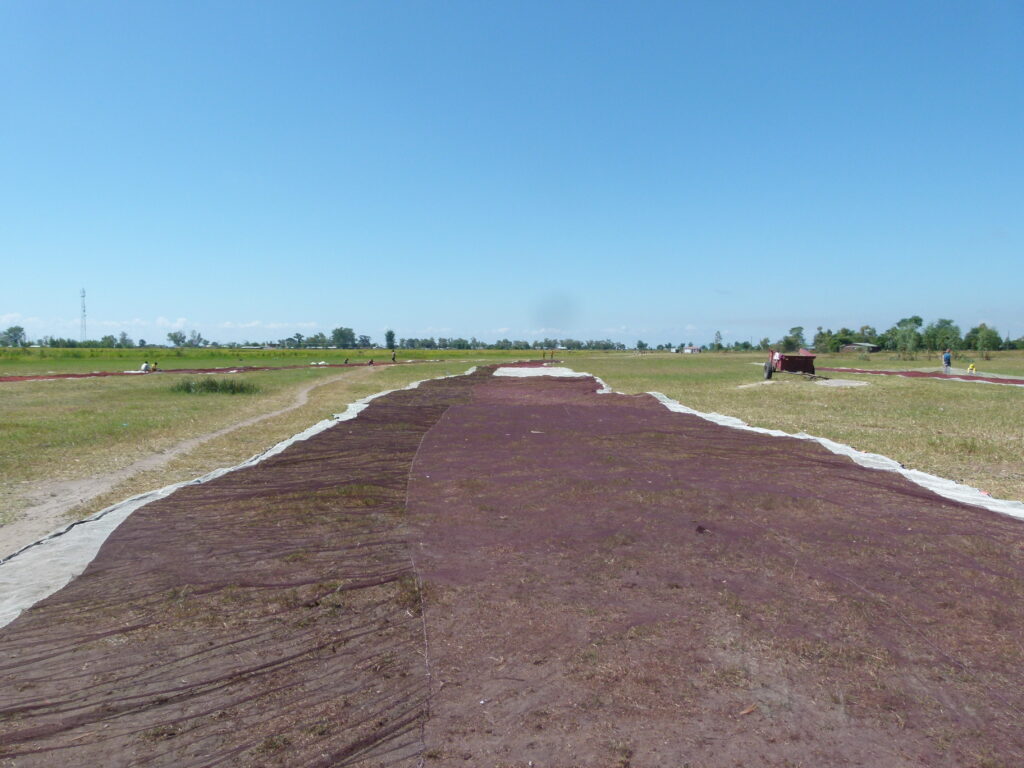By Welton Phalira
On a chilly morning on April 24, 2024, the Bigpot Consulting Team arrived at the shores of Lake Chilwa to assess the fishing activities at Kachulu and Mchenga beaches in Zomba, Malawi. The scene was quieter than expected; the rising lake levels from recent cyclones had engulfed much of the fish production areas, and the cold, windy weather had driven the fish into hibernation, significantly reducing catches.
As we walked along the beach, we noted several troubling signs. Fishermen were using monofilament nets, which, although banned, were still in operation, sweeping up everything in their path, including fingerlings which were then sun-dried on racks along the shoreline. The beaches were littered with discarded plastic bags, a testament to the environmental neglect that often accompanies resource depletion.

We spoke with Elliot Lungu, the District Fisheries Officer for Zomba, who shared his insights on the state of Lake Chilwa’s fisheries. Despite the general increase in productivity when water levels are optimal, with annual catches reaching up to 20,000 metric tons, he emphasized that overfishing remained a major challenge. “The monofilament nets are a particular concern,” he noted, describing them as a significant obstacle to sustainable fisheries management.
The Department of Fisheries has been trying to tackle these issues through participatory fisheries management and enforcement efforts, but they face severe constraints. “Our resources are limited,” Lungu explained. “We have an old vehicle that’s costly to maintain, and our staff numbers are too low for effective enforcement.”
Local governance institutions, such as Beach Village Committees and fisheries associations, were reorganized in 2019 through the FISH Project, but their performance has dwindled as members moved on, signaling a need for a revamp. Despite these efforts, the community-supported monitoring system, while functional, has gaps that compromise data quality and limit understanding of fishery dynamics.
The overfishing problem is driven largely by poverty, with many depending on the lake for their daily survival. This desperation is compounded by broader environmental challenges, including dropping water levels and climate variation, which exacerbate the difficulties for Lake Chilwa’s ecosystem, historically one of Malawi’s most productive lakes.
National fisheries policies and conservation efforts aim to manage these issues, but the effectiveness of participatory fisheries management has been questioned, and enforcement of regulations remains a challenge. The socio-economic importance of the fisheries is significant, yet the environmental degradation and biodiversity loss continue to pose major concerns.
As we concluded our visit, the complexity of Lake Chilwa’s challenges was clear. The lake’s fluctuating water levels, combined with socio-economic pressures and inadequate management resources, paint a bleak picture for its future. However, with strengthened conservation efforts, enhanced enforcement, and community engagement, there remains hope for restoring Lake Chilwa’s productivity and securing the livelihoods of those who depend on it.
